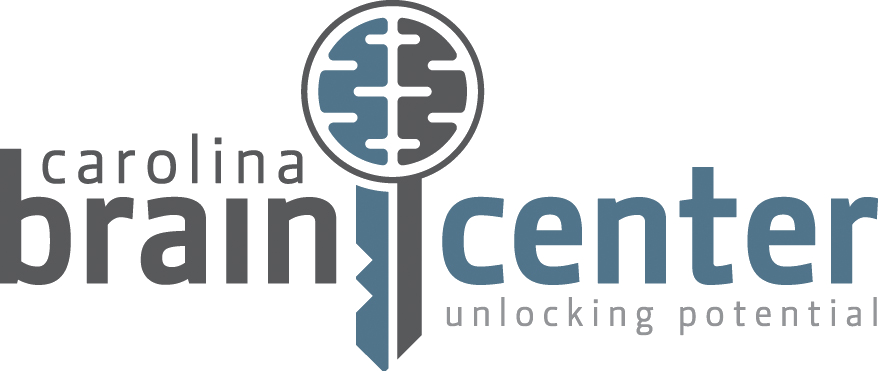In the quest for longevity and vitality, one of the most crucial areas of our health that demands attention is our brain. As we age, our mental faculties can either be a source of continued independence and joy or become a concern that limits our ability to enjoy life to its fullest. I’m Dr. Dane, a Chiropractic Neurologist at Carolina Brain Center, and I specialize in the intersection of chiropractic care and neurological health. The brain’s ability to function optimally doesn’t have to decline significantly with age. Through comprehensive strategies encompassing diet, exercise, mental stimulation, and specialized care, such as chiropractic neurology, we can all take significant steps toward age-proofing our minds. This article is dedicated to exploring those strategies, offering insight and actionable advice on how to maintain a healthy, vibrant brain throughout all stages of life.
Understanding the Aging Brain
The aging process inevitably brings changes to all parts of our body, including the brain. These changes can affect memory, cognitive speed, and the ability to learn new things. However, it’s a common misconception that significant cognitive decline is an unavoidable part of aging. In reality, while certain aspects of brain function may naturally slow down, significant loss of cognitive abilities is not a given. The concept of neuroplasticity, or the brain’s ability to form new neural connections, remains active throughout our lives. By leveraging this innate capability, alongside adopting certain lifestyle habits and treatments, we can significantly influence how our brains age.
Comprehensive Strategies for a Healthy Aging Mind
Diet and Nutrition
A nutritious diet plays a foundational role in brain health. Foods rich in antioxidants, such as berries, and those high in omega-3 fatty acids, like fatty fish, can protect the brain from oxidative stress and inflammation, which are linked to cognitive decline. Incorporating a variety of vegetables, lean proteins, and whole grains into your diet can also support overall brain function. Supplements such as vitamin D, vitamin B12, and omega-3s can be beneficial, especially for those who may not get enough of these nutrients from their diet alone.
Physical Exercise
Physical activity is not only good for the heart and muscles but also for the brain. Exercise increases blood flow to the brain, which can help to improve cognitive functions and encourage the growth of new neuronal connections. Activities such as walking, cycling, swimming, and resistance training are particularly beneficial. Engaging in regular exercise can also reduce the risk of diseases that affect cognitive health, such as diabetes, heart disease, and obesity.
Mental Stimulation
Keeping the brain active and engaged is essential for preserving cognitive function. Challenging the brain with puzzles, learning a new language, or playing a musical instrument can stimulate neurogenesis (the creation of new brain cells) and improve neural plasticity. Social interactions and community engagement are equally important, as they can reduce stress levels and provide emotional support, which in turn, benefits brain health.

The Role of Chiropractic Neurology in Cognitive Health
Chiropractic Neurology offers a unique perspective on maintaining and improving brain health. As a Chiropractic Neurologist, I focus on the diagnosis and treatment of nervous system disorders using non-invasive therapies that do not rely on drugs or surgery. By assessing the function of different parts of the nervous system, Chiropractic Neurologists can identify imbalances and dysfunctions that may contribute to cognitive decline. Through tailored treatment plans, which may include spinal adjustments, functional neurology exercises, and lifestyle modifications, we aim to optimize neural function and support the brain’s natural healing processes. This approach not only helps in addressing existing neurological issues but also in preventing potential cognitive decline through the enhancement of overall brain health.
Benefits of Regular Appointments with a Chiropractic Neurologist
Regular appointments with a Chiropractic Neurologist are not just for addressing existing neurological conditions; they play a vital role in the preventative care strategy for cognitive health. These visits provide several key benefits that contribute to a healthy aging mind:
- Early Detection and Intervention: Regular check-ups can help identify neurological issues before they become severe. Early detection of dysfunctions within the nervous system allows for timely intervention, which can be critical in preventing further decline.
- Personalized Care Plans: One size does not fit all when it comes to brain health. A Chiropractic Neurologist assesses each individual’s unique condition and tailors a treatment plan that addresses specific needs and goals. This personalized approach ensures that you receive the most effective treatments to support your cognitive wellbeing.
- Non-Invasive Treatments: Chiropractic neurology focuses on non-invasive methods to improve neurological function, which is particularly appealing for those seeking alternatives to medication or surgery. These treatments can include spinal adjustments, specific exercises designed to stimulate neurological pathways, and lifestyle modifications that promote brain health.
- Holistic Approach to Health: Chiropractic Neurologists view the body as an interconnected system, recognizing that a dysfunction in one part can affect overall health, including cognitive function. Regular appointments allow for a comprehensive approach to health that addresses not just the brain, but the entire body.
- Education and Empowerment: Visits to a Chiropractic Neurologist are educational, providing patients with the knowledge and tools they need to maintain and improve their brain health outside the clinic. This empowerment is key to making lasting lifestyle changes that support cognitive function.
What to Expect in an Appointment
Understanding what happens during an appointment with a Chiropractic Neurologist can help demystify the process and highlight the value these specialists bring to cognitive health. A typical visit may include:
– Comprehensive Assessment: The appointment begins with a thorough evaluation, including a review of your medical history, physical examination, and specific neurological tests. This assessment helps to pinpoint areas of concern and guide treatment planning.
– Customized Treatment Plan: Based on the assessment, a treatment plan is developed to address your specific needs. This plan may include spinal adjustments, exercises that target neurological pathways, and recommendations for dietary and lifestyle changes.
– Ongoing Support and Adjustment: Health is not static, and neither are treatment plans. Regular appointments allow for the monitoring of progress and adjustments to the treatment plan as needed. This ongoing support ensures that the care you receive evolves with your health needs.
– Preventative Strategies: Beyond addressing immediate concerns, appointments also focus on preventative strategies to protect and enhance brain health. This proactive approach aims to maintain cognitive function and prevent the onset of neurological issues.
Conclusion
Age-proofing our brains is an achievable goal, requiring a multifaceted approach that includes diet, exercise, mental stimulation, and the specialized care of a Chiropractic Neurologist. At Carolina Brain Center, we are committed to providing our patients with the highest level of care, tailored to support the unique needs of each individual as they age. By adopting comprehensive strategies for brain health and leveraging the expertise of a Chiropractic Neurologist, we can all take proactive steps towards maintaining cognitive function and enjoying a high quality of life in our later years. I encourage you to schedule an appointment with us to explore how we can support your journey to a healthy aging mind. Together, we can work towards not just living longer, but thriving as we age.

